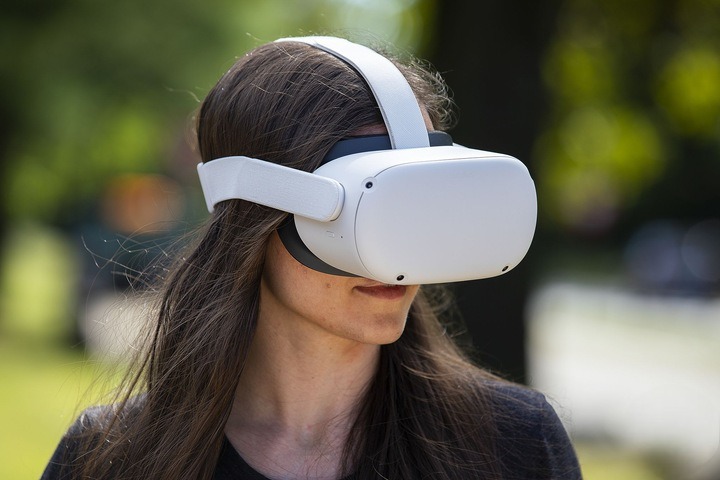Finally, Meta’s AR/VR roadmap is out. Will Meta succeed again?
With a surge of AR (augmented reality) and VR (virtual reality) products, the parent company of Facebook, Meta now appears to be significantly investing in its metaverse plans.
Quest Pro, a premium virtual and augmented reality headset from Meta, was introduced in October of last year. According to reports, Meta plans to introduce its first set of smart glasses with a display in 2025 along with a smartwatch with a neural interface to operate them.

According to the story, Meta’s AR glasses are anticipated to become available later in 2027. A Quest 3 headset is probably included in the social media juggernaut’s potential 2018 plan as well. In 2024, it might also reveal a headgear with the codename Ventura.
Also Read: Snapchat launches A.I. chatbot powered by OpenAI’s GPT
The Verge reported that the potential roadmap for many AR and VR devices from Meta for the years 2023 through 2027 has been leaked. The Meta Quest 3 headset with mixed reality interactions will be revealed later this year, according to the story, which cites personnel of Meta’s Reality Labs division.
The main headset could be two times as thin and potent as the Quest 2 and is anticipated to cost more than it does at present. The Verge reported that the potential roadmap for many AR and VR devices from Meta for the years 2023 through 2027 has been leaked.
The Meta Quest 3 headset with mixed reality interactions will be revealed later this year, according to the story, which cites personnel of Meta’s Reality Labs division.
The main headset could be two times as thin and potent as the Quest 2 and is anticipated to cost more than it does at present.
According to the report, the Mark Zuckerberg-led company intends to release a more “accessible” headset next year under the codename Ventura. The firm might then release an advanced headgear with photorealistic Codec Avatars, code-named La Jolla.
Additionally, the report claims that the company will introduce the second-gen of its Ray-Ban Stories this fall. The glasses for augmented reality were created in collaboration with Luxottica, the parent company of Ray-Ban.
The third version of smart glasses with a “viewfinder” display for reading incoming texts, scanning QR codes, and instantly translating written text from another language is expected to be unveiled by the company in 2025.
Also Read: Microsoft brings iMessage to Windows 11, will it last?
The “neural interface” band that will enable individuals to operate the glasses through their brains will be distributed along with them.
The “neural interface” band, which would enable users to operate the glasses through hand gestures, will be made available along with the glasses. According to other reports, Meta is also working on a smartwatch that will sync with smart glasses.
Additionally, it has been reported that Meta may reveal its long-rumored Orion augmented reality glasses to staff members internally in 2024. It might be accessible to everyone after 2027.

I am a law graduate from NLU Lucknow. I have a flair for creative writing and hence in my free time work as a freelance content writer.


